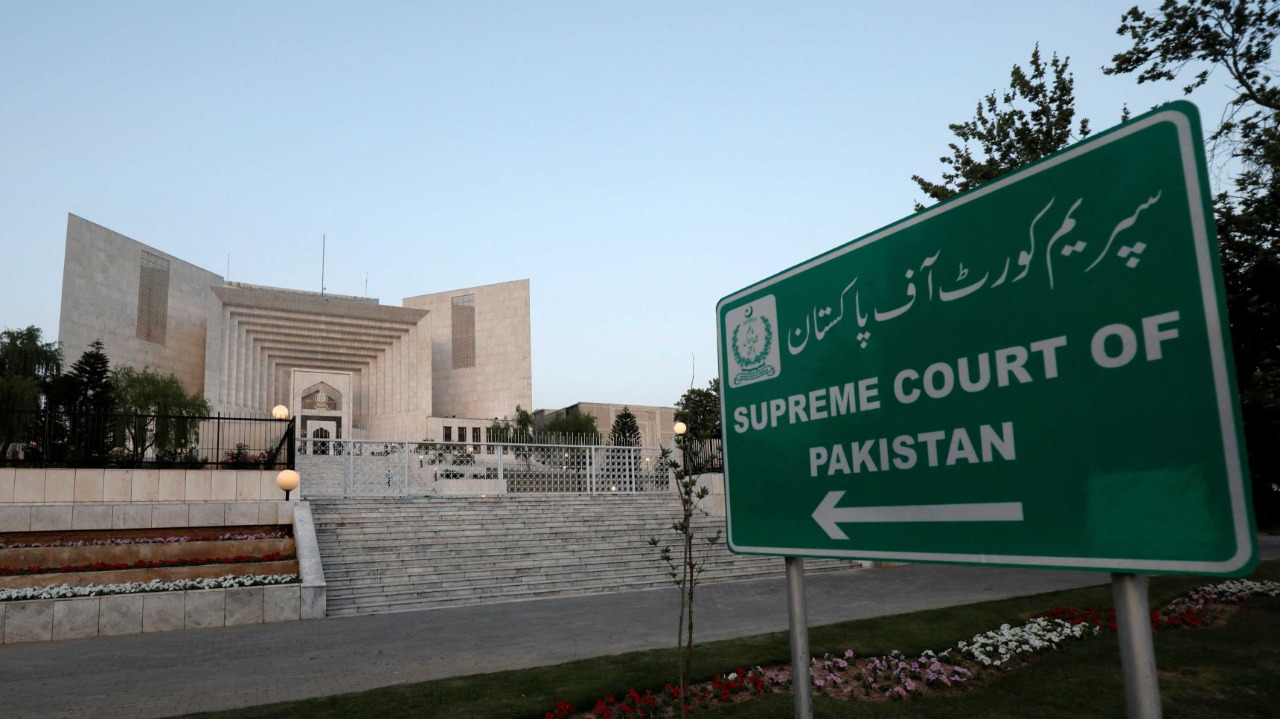Gone are the days when the weapons of war were by and large confined to armoured tanks, mobile infantry, artillery, fighter jets and bombers, and submarines and warships. We are now in the age of hybrid war in which countries can be defeated without the enemy firing a single shot. I quote former US president, President Barack Obama:
“You just have to flood a country’s public square with enough raw sewage. You have to raise enough questions, spread enough dirt, (and) plant enough conspiracy theories that citizens no longer know what to believe. Once they lose trust in their leaders, in mainstream media, in political institutions, in each other, in the possibility of truth, the game is won.”
Lawfare is part and parcel of today’s hybrid warfare. It is the deliberate misuse of law and legal principles to damage or delegitimize the legal system of another country and to waste its time and money.
If you want to read more on this subject, you may like to pick up a copy of Orde Kittrie’s book ‘Law as a weapon of War” or listen to the 2017 keynote address of USAF Major-General Charles Dunlap Jr before the American Bar Association on “Lawfare and Warfare” or see the various publications in the weekly journal of the US Lawfare Institute which works in cooperation with the Brookings Institution.

And it is not just the Americans. The practice of lawfare is increasing world-wide and one of the active practitioners is the enemy in our immediate neighborhood.
Truth is the first victim of lawfare.
Permit me to give you some examples relevant to our own context. Kill one of their civilians in the so-called civilised world and it is: unacceptable Islamic militancy, possibly a war crime, to be suppressed and condemned by all right-thinking people.
Kill several of our residents in the tribal areas in drone attacks and it is: regrettable collateral damage, they should not have been hobnobbing with terrorists. Freedom fighters in Kashmir: undoubted terrorists. Terrorists waging war against our troops in Balochistan: nationalists fighting for their rights.
Pakistan’s ranking in the Rule of Law index of the World Justice Project is 130 out of 139. Therefore, in international contracts with Pakistan or its entities, the applicable law cannot be that of Pakistan regardless that the contract has to be performed here. Dispute resolution has to be through outside arbitrators as the Courts in Pakistan cannot be trusted to deliver justice. Even the venue of arbitration has to be in some foreign country as the law-enforcing authorities in Pakistan may try and over-awe the arbitrators.
This is a part, a small part, of the subservient mentality created by the lawfare waged against us in which we have unthinkingly/unwittingly entered into as many as 53 Bilateral Investment Treaties with 48 different countries. In 1965 we signed the Convention on the Settlement of Investment Disputes between States and the Nationals of Other States. Our basic obligations under this Convention, namely, fair and equitable treatment to foreign investors on par with and not less than the treatment given to our own citizens, rights to repatriate the original investment amounts and profits in the currencies in which the investments were made, no expropriation or nationalisation and, in any event, not without adequate compensation, were fulfilled when we enacted the Foreign Private Investment (Promotion and Protection) Act 1976 and the Protection of Economic Reforms Act 1992. Several of the provisions of the bilateral treaties go well beyond our obligations under the 1965 Convention. For example, the treaty with Australia bars Pakistan (Article 13 refers) from raising any counter-claim or right of set-off or a defence that the investor will receive compensation for any alleged loss from an insurance or guarantee contract, despite the fact that Article 46 of the 1965 Convention specifically permits counter-claims and its Article 42 places no bar on other defences available under the laws of Pakistan. Apart from a number of other objectionable features, these treaties enable the foreign investors to take their disputes directly to the arbitral tribunals set up under the auspices of the International Center for Settlement of Investment Disputes (ICSID) located in New York, under Article 36 of the I965 Convention, by-passing the Courts in Pakistan. Let us be clear that these are unequal treaties of little, in fact no, use to us. They are designed to protect the nationals of capital-exporting countries like the United Kingdom, Switzerland, Netherlands, the UAE, Kuwait and others, and not capital-importing countries such as Pakistan.
I have to say with regret that our decision-makers signed these treaties with no understanding of the implications of the various clauses extending unwarranted rights to foreign investors.

In 2011 we passed the International Investment Disputes Act to give full force and effect to Articles 18 to 24 of the 1965 Convention relating to the immunity of ICSID and its properties and personnel from all legal process in Pakistan. In the same year we enacted the Recognition and Enforcement (Arbitration Agreements and Foreign Arbitral Awards) Act to give effect to Articles 53 and 54 of the 1965 Convention providing for the binding enforceability of the arbitral awards not only against the federal government but also all constituent units of the State of Pakistan. Both laws were hailed by our then government as “a giant leap forward” that would create confidence among foreign investors, and we looked forward to a bonanza of foreign investment. Did this happen?
The Board of Investment figures show that foreign private investment was a little more than a billion dollars per annum in the five years that followed. It crossed the 2 billion mark mostly because of CPEC investment after 2016, and although we did sign a bilateral investment treaty with China way back in 1989, the CPEC investment has come within the framework of the Free Trade Agreement 2006 which has investment provisions, For settlement of disputes the FTA allows the Chinese investor to invoke ICSID arbitration but only after amicable negotiations over a period of six months have failed to produce results to the satisfaction of both parties, and administrative review procedures under Pakistan law have been exhausted by the Chinese investor. Furthermore, the applicable law is the law of Pakistan. Apart from China we have entered into six other similar treaties with investment provisions with Malaysia, the USA, ECO, SAFTA, OIC and EU.
The Board of Investment figures show that the bulk of foreign investments in Pakistan have come from China, UK, USA, Hong Kong, Switzerland, UAE, Italy, Netherlands, Austria and Japan.
The 10 largest multinational investors are Nestle, Coca-Cola, KFC, Unilever, Pizza Hut, Procter and Gamble, Mobilink, Toyota, Standard Chartered and Microsoft. None of these 10 multinationals have engaged us in ICSID arbitrations. We do not have bilateral investment treaties with USA or Hong Kong, Investments by USA nationals are covered by the Trade and Investment Framework Agreement 2003 between the two countries. It provides for joint consultation at the level of the US-Pakistan Council on Trade and Investment to resolve disputes.
The level of foreign private investment is determined, in the main, by factors such as the ease of doing business, the tax regime relevant to the investment, the threat of terrorism, energy shortages, political instability and the adequacy or otherwise of skilled human capital in specialised fields, and is not dependent on wholly unjustified legal advantages to foreign investors at the expense of the State of Pakistan and its entities.
Pakistan’s ranking in the Rule of Law index of the World Justice Project is 130 out of 139. Therefore, in international contracts with Pakistan or its entities, the applicable law cannot be that of Pakistan regardless that the contract has to be performed here
Let us go to Wagah, cross the border and on to Delhi. Although it did not sign the 1965 ICSID Convention, India entered into as many as 83 bilateral investment treaties. India faced 20 ICSID arbitrations before it was confronted with the Award in the White Industries versus Coal India case. The applicable bilateral treaty was the one with Australia but the arbitration tribunal relied on the terms of India’s bilateral treaty with Kuwait to hold that India was in breach of its obligations under the Australian treaty. White Industries had been deprived of “effective means” of enforcing its claim for supply of equipment to Coal India on account of unreasonable delays in Indian courts. The “effective means” provision in the Kuwait treaty was read into the treaty with Australia. Subsequent to this Award India has unilaterally terminated 60 treaties and developed a model bilateral investment treaty document 2016, for the future. An EU Ambassador said at that time that the model was a non-starter but India has since signed six treaties on the basis of this model draft and is negotiating another 13. The model provides amongst other things that the investor must exhaust all administrative and legal remedies available in India for a period of not less than five years and if there is still no resolution satisfactory to him, only then can he give notice for referral of the dispute to international arbitration.
Back to Pakistan. For us the wake-up call is, or should be, the Reko Diq case. An Award scandalous beyond words – the $6 billion equal to inflow of about five years of private investment; $6 billion against the 200 to 250 million dollars investment of the Tethyan Copper Company in exploration activities. I am sure you all know the facts better than me but one aspect may have escaped your notice. The treaty with Australia was signed in 1998. Antofagasta is Chilean. We do not have a treaty with Chile. Barrick Gold is Canadian. We do not have a treaty with Canada. In the year 2000 both Antofagasta and Barrick Gold flew across the Pacific Ocean to register the Tethyan Copper Company, as equal partners, in Australia. The number of Australians in Tethyan Copper; a big fat zero. Please note how carefully Antofagasta and Barrick Gold prepared themselves to invoke international arbitration in case they ran into problems with the Pakistani State.
Apart from Reko Diq foreign investors have taken us to international arbitration in 10 other cases. The Swiss SGS, and the two Italian Impregilo cases were settled amicably during the course of the arbitration proceedings. The Kuwait Agility case was a draw; liability was found but no damages awarded. The UK Allawi and the linked Mauritius Progas Energy Mauritius were decided in favour of Pakistan. The Bayindir Turkey case was also decided in favour of Pakistan but Bayindir has again invoked ICSID arbitration in yet another matter which is pending. The Saudi Al-Tuwairqi case is also pending. Finally, Karkey Kardeniz Turkey; we lost badly, penalty of $1.2 billion but President Erdogan came to our rescue.
Out of the 53 treaties that we have signed, five have been terminated and 16 are not in force as we have not ratified them. We should not ratify and instead issue notices for their immediate termination. This still leaves 32. Reportedly, in 23 cases the 10 to 15 to 20 year periods, after which they can be terminated on giving one year’s notice, have expired. We should give such notices without further ado. In the remaining 9 cases we will have to wait. However, even after we terminate them the treaties provide that they will remain in force for a further period of 15 years in respect of investments made prior to dates of termination.
For the future we need to develop a model treaty document. I am informed that the Board of Investment is already doing so. The Board could borrow a leaf or two from the Indian model.
And, finally, we should pass a law that categorically prescribes that no person, public or private, shall sign an agreement providing for the applicability of a law other than that of Pakistan in cases where the bulk of contract performance is to be in Pakistan.


